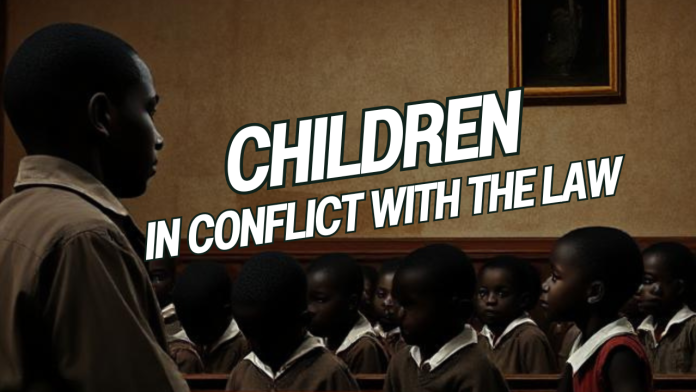Every child deserves a chance to grow, to learn from their mistakes, and to build a better future. But for many children in Kenya and across the world, early exposure to poverty, violence, abuse, or neglect pushes them into conflict with the law long before they understand the full consequences of their actions.
Children in conflict with the law are those under the age of 18 who are alleged to have committed an offence, are accused of an offence, or are found guilty of breaking the law. Their involvement with the justice system often reflects a deeper crisis of inequality, exclusion, and lack of support not simply a case of bad behavior.
There is rarely a single reason why a child commits a crime. In most cases, it’s a complex mix of factors such as; poverty and lack of basic needs, broken families or parental neglect, drugs and substance abuse, peer pressure, lack of education or school dropouts and being victims of abuse or exploitation
For many, engaging in petty crimes like theft or drug-related offences is not a choice it’s a survival mechanism.
Kenya has made significant strides in aligning its laws with international standards. The Children Act (2022) and the Constitution of Kenya (2010) emphasize the best interests of the child in all matters affecting them. Children in conflict with the law are entitled to; Legal representation, protection from torture or inhumane treatment, separation from adult offenders in detention and rehabilitation over punishment.
Additionally, the United Nations Convention on the Rights of the Child (UNCRC), to which Kenya is a signatory, emphasizes that children should only be detained as a last resort and for the shortest possible time.
Kenya’s juvenile justice system aims to reform rather than punish. This includes: child Protection Units (CPUs) within police stations, children’s Courts that handle juvenile cases, diversion programs that offer alternatives to prosecution (e.g. counselling, community service) and rehabilitation schools such as Kabete, Dagoretti, and Kirigiti for boys and girls respectively.
But in reality, challenges remain from overcrowded facilities and delays in trials to lack of legal aid and stigma after reintegration.
At Haki FM, we’ve heard from young people who turned their lives around after support from NGOs, social workers, and diversion programs. One 16-year-old from Nairobi shared:
” I was arrested for stealing a phone. I was scared, and I didn’t even understand what was happening. A social worker helped me get counselling instead of going to jail. Now I’m back in school and want to be a mechanic.”
Such stories remind us that with the right interventions, no child is beyond hope.
Children in conflict with the law are not criminals, they are children in need of protection, guidance, and a second chance. Justice must be restorative, not retributive. At Haki FM, we believe that when we protect the rights of every child, we build safer communities and a more just society.


